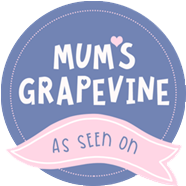Pregnancy: Does What You Eat Impact Your Baby’s Brain?
Posted on 11 December 2019
Women who are expecting are conscious of everything that they put into their mouths. Beyond counting calories (your baby only adds about 300 additional calories to your daily needs,) the old adage about eating for two (or more for those expecting multiples) is no joke. If you’ve cut out alcohol and started taking a prenatal vitamin then you’ve already taken important steps to a healthy, happy baby. But did you know that the majority of your child’s brain growth is happening right now, while you’re pregnant, and that what you eat can have a tremendous impact?

Amazingly, though a newborn’s weight at birth is only about 5% of what they’ll grow to as adults, the weight of their brain at birth is already about 35% of what it will end up being. Another 15% of brain growth occurs during infancy and almost all of the remainder comes by the time they are five or six years old. What you eat while you’re expecting makes a real difference in critical initial brain development.
So, which foods should you be choosing to optimize the development of baby’s brain?
The first thing you need to know is about the importance of fat — and particular that the brain is the fattiest organ of the body. The polyunsaturated fats omega-3 and omega-6 are essential for ensuring structural and functional integrity of the entire central nervous system. Put those two nutrients at the top of your priority list, then add Vitamin B complex (including folic acid) to further support brain development and protect against defects.
Below you’ll find the best sources for each of these essential brain building blocks, as well as a few other pointers that will broaden your dietary choices while boosting baby’s brain health:
Omega-3 foods: The two most beneficial omega-3s are EPA and DHA, and the best source of these two fatty acids are cold-water fish like salmon, sardines, anchovies and herring. If you are concerned about mercury or otherwise don’t care for fish, purified fish oil supplements can provide a safe alternative. Vegans and vegetarians can turn to algae oil supplements.

- In-the-know extra: During the course of your pregnancy, your placenta will carry EPA and DHA from the food and supplements you take, but during your third trimester the baby’s demand for DHA is so great that your own store of DHA will be depleted and will take 5-to-6 months to return to normal. DHA depletion has been linked to postpartum depression, so make sure that you’re taking in enough throughout your pregnancy to provide for your own needs too.
Omega-6 foods: Omega-6s are polyunsaturated fatty acids, or PUFAs, and they are best consumed through vegetable oils and nuts. A study published in the European Journal of Epidemiology showed that mothers who ranked in the highest third for eating nuts — any kind of nuts — during their pregnancy had children who scored higher overall on tests of working memory, IQ and sustained attention than the children of mothers who ate fewer or no nuts at all.
- In-the-know extra: Though you want a good balance of omega-3s and omega-6s for your baby’s brain health, keep in mind that the source of your omega-6s should be healthy rather than foods high in fat, sugar or salt.
Vitamin B complex: These vitamins not only are essential to brain development, but also help to minimize the risk of birth defects. Most prenatal vitamins will contain the eight vitamins that make up the vitamin B complex, but these supplements are meant to support a healthy diet — not to replace it. The best way to provide these vitamins is through the foods you eat, and the three most important are B6 (pyridoxine), B9 (folic acid) and B12 (cobalamin), which help are essential for neural tube formation and brain and spine development. The best foods that provide these vitamins include:
- B6 - garlic, beans, sweet potatoes, chickpeas
- B9 – lentils, spinach, Great Northern Beans, fortified cereals
- B12 – wild salmon, soy milk or other soy products, shrimp, grass-fed beef liver or tenderloin
In-the-know extra: B-complex vitamins do more than boost your baby’s brain development — they also give you the strength and endurance you need to make it through your pregnancy, helping you fight exhaustion and giving you renewed energy.
Choline: Choline is key to fetal brain development, and one of the best sources of this beneficial nutrient is one of the most complete foods: the egg. Eggs also have the benefit of providing loads of protein and folic acid too. To make sure that you get the full advantage, make sure you eat both the egg yolk and the white. Other good sources include meats, poultry, fish and dairy products, as well as nuts, seeds and whole grains.
In-the-know extra: Up to 95% of pregnant women take in less choline than is recommended, and your prenatal vitamin may not make up for that deficiency. Beef liver is the best source, with eggs ranking second and beef top round ranking a close third.

One more extra: A study out of the University of Montreal has suggested that moderate exercise during pregnancy can both influence your baby’s brain development and help keep you healthy and happy. Researchers found that just twenty minutes of moderate exercise three times per week had infants whose brain wave activity reflected higher levels of development.





0 comments